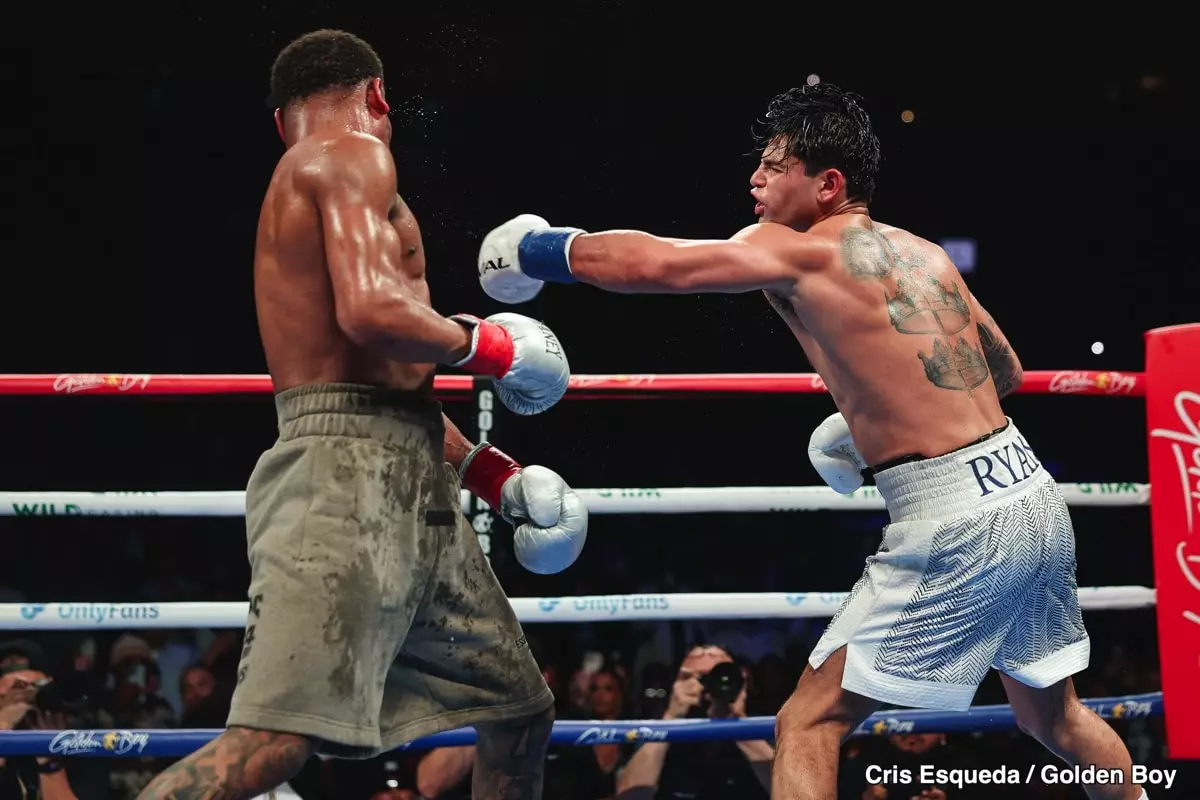By Maestro Amílcar Barnett M.
The anticipation surrounding high-stakes matchups often comes with nuanced decisions made by fighters and their teams. Recently, the decision of Ryan Garcia and Devin Haney to engage in tune-up fights instead of a direct rematch—for which fans were eager—shows a possible miscalculation in strategy, reflecting the complex dynamics between risk and reward in the sport.
Tune-up fights are typically designed to reestablish or bolster a fighter’s confidence before stepping back into a challenging matchup. For example, Ryan Garcia (24-1, 20 KOs) is set to face Rolando ‘Rolly’ Romero, while Devin Haney (31-0, 15 KOs) is contending with former unified champion Jose Ramirez (29-2, 18 KOs) on May 2nd. Looking at these selections, one could argue that the stakes are higher for Haney, who is coming off a loss against Garcia and needs to bounce back to redeem his credibility.
The rationale behind having a warm-up fight might appear practical on the surface; however, it also invites the risk that either fighter could suffer another defeat, complicating their future careers. In boxing, momentum is paramount, and tuning up against formidable opponents could lead to unforeseen consequences, especially in Haney’s case.
In discussing the designated opponents, the consensus seems to suggest that Garcia has the upper hand against Romero, who has displayed vulnerability in previous fights, notably suffering a loss to Isaac Cruz. This matchup seems more ‘safe’ as Garcia can likely secure a victory, bolstering his position for a rematch with Haney afterward. In contrast, Haney’s battle with Ramirez poses a significant risk, given Ramirez’s established reputation as a competent and dangerous opponent.
Haney’s defeat against Garcia was not just a loss; it was critical, as he was dropped three times in that match. For Haney, the prospect of taking on Ramirez—with his previous accolades and fierce competitiveness—creates a precarious scenario where another loss could threaten his status as a top contender in the sport.
The decision-making process surrounding these fights hints at the larger role that team dynamics play in shaping a fighter’s career trajectory. As Ade Oladipo pointed out during an analysis for DAZN Boxing, there is a sense that either Garcia or Haney—or their respective teams—opted to deflect a head-to-head clash in favor of preparing independently. The opportunities for promoter Turki Al-Sheikh to broker direct rematches are often blamed, but at its core, the decision rests on the fighters’ camps.
As fans reflect on the missed opportunity for a rematch, one could draw parallels to previous boxing standoffs, such as the anticipated Deontay Wilder vs. Anthony Joshua bout, which lost its chance due to both fighters pursuing independent roads. The boxing community thrives on memorable moments, and opting for warm-ups can deny audiences the intense competitions they crave.
While there’s merit to taking a more cautious approach after a loss, the critical question remains: at what cost? For Haney, a bout against Jose Ramirez is a risky gambit that carries consequences if he falters. This choice undermines the potential for an immediate rematch, which could have clarified the standing of both fighters once and for all. Instead, we are met with a scenario where both must navigate the uncertainty of their warm-up fights.
Observing both fighters exercising caution raises questions regarding their confidence in their abilities. Is Haney, having just lost to Garcia, feeling secure enough to face a formidable foe like Ramirez? Similarly, for Garcia, might the decision to warm up against a less threatening opponent suggest a hesitance about his own readiness for what lies ahead?
In an era where boxing has seen rapid promotions and quick turnarounds for high-profile fights, delaying a confrontation that fans are clamoring for can be a risky choice. The repercussions of opting for tune-ups will unfold over time, demonstrating either strategic foresight or regrettable miscalculation by both Garcia and Haney. As they step into the ring with their respective opponents, the boxing world will be watching—not just for the outcomes of these matches, but for how these decisions will shape the future of their careers and the anticipation for a potential rematch.


Leave a Reply